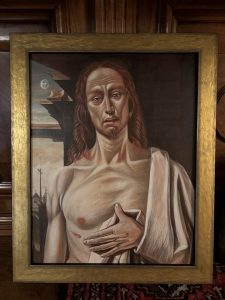Is writing the self speaking our vulnerability in order to become empowered?
In reflecting on the book “A vulnerable teacher” (1974) by composition teacher Ken Macrorie (1918-2009), I realized I perceive and sense vulnerability to be something different than he does. After explaining that vulnerable comes from “vuln” the Latin word for “wound”, he writes that “To become powerfully vulnerable is to expose oneself to possible wounds.” At first glance, as a first visceral response, this sounds and seems true… I have even lived this, but…
The freedom to commit oneself to writing what makes one vulnerable is to encourage another’s freedom too. It is not through the grand stories of our strengths that we grow and hold space for other people; it’s through speaking clearly about our fears and using words to move towards the memories that are associated with these and have become encapsulated. This encapsulation, intended to keep us safe, can hold us from feeling our fuller aliveness and from connecting deeply.
Our bodies mirror the protective shells we hold inside; we are slightly clenched, closed and for another to share pain with us, not accessible. To be vulnerable ultimately is to stop being selfish about our self image; it is to know we were hurt but that this only makes us paralyzed until we realize this vulnerability is a doorway to a wider freedom and kindness.
As we write, we can massage and restory pain into a kind of humanity that makes it easier for us and for others to breathe, to say, to open, and therefore to become.
So the power of vulnerability is not really to expose ourselves to wounds; it is to expose our wounds in order to become empowered.
Macrorie, K. (1974). A vulnerable teacher. Rochelle Park, NJ: Hayden.

